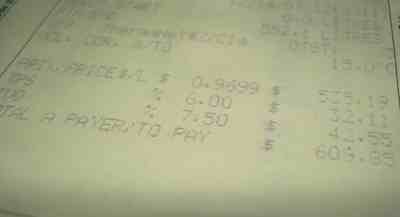Many of us cringe when we open that first heating bill of the winter season. We know that the bills are going to skyrocket as soon as we begin to warm up our homes but we still can’t believe just how much pricier our heating bills get during the winter months. Most of us our grit our teeth, put on an extra sweater and try to get through the coldest months of the year as frugally as possible. What many people don’t realize is that it’s totally unnecessary to suffer in this manner. There are actually a lot of programs available that can help you to lower your heating bills this winter.

- Heating Bill
Federal Help to Lower your Heating Bills
The first place to look for help is through the federal government. The government offers two major programs (disbursed through the state government) to reduce heating bills for people who meet certain low income requirements. These two programs are:
- Low Income Home Energy Assistance Program (LIHEAP). This program helps people in need to pay their immediate home energy bills so that their heat doesn’t get turned off during the winter. It may also help replace or repair broken furnaces and provide emergency heating assistance.
- Weatherizing Assistance Program (WAP). This program helps to pay the costs of winterize your home. Doing this increases the energy efficiency of the home and lowers your electric bills so that you can afford to pay them.
Examples of State Programs to Lower Heating Bill Costs
Each individual state offers additional programs to help residents lower the cost of heating each winter. Some of these also have income requirements but others are available to people who may not be low income but do need some help with their heating situations. You’ll have to check locally with your state government to see what programs are available in your area. Examples of common types of programs that may be available include:
- Discounts on Utility Bills. Some states offer programs that allow you to receive a discounted rate on your utilities if you meet certain income requirements. This applies to your heating bills.
- Special Needs Vouchers and Rebates. Some states offer vouchers, rebates and bill credit to residents with special needs. People who may qualify include the elderly, homes with infants and the very ill (all people who can’t survive a cold winter without proper heating!)
- Protection from Heat Shutoff. Some states have laws and programs in place to prevent utility companies from turning the heat off due to unpaid winter bills. Some of these programs help to delete or pay off the outstanding bills to get you back on track.
- Emergency Heating Assistance. Many states offer one-time or short-term assistance to people in emergency situations who are having trouble paying their heating bills. For example, if you have recently become unemployed then you may qualify for this type of help. People experiencing an income loss due to divorce may also qualify.
- Green Appliance Rebates. Most states offer discounts and rebates when you replace your outdated heating appliances with new Energy Star appliances. More efficient appliances will help lower your heating bills.
Other Programs that Offset Winter Heating Prices
In addition to federal or state government programs, you may look into other local and non-profit programs to help reduce winter heating costs. Examples of these programs include:
- Heating Bill Restructuring. Many utility companies will allow you to restructure your bill payments so that instead of having fluctuating bills you pay the same amount every month of the year. The amount is based on your average annual use. This can make it easier to budget your money and to afford enough heat even during the winter months when you’re using a lot of it.
- Citizens Energy Oil Heat Program. This program helps to provide absolutely free heating oil to residents who need it. You can get a one time donation of up to one hundred gallons of heating oil. This program is available primarily in very cold weather areas.
What is toughest about winter heating bills for you? Is it the general cost, the fact that the bills are so much higher in winter than summer or the additional cost of having to winterize and upgrade the home? Leave your answer in the comments!
